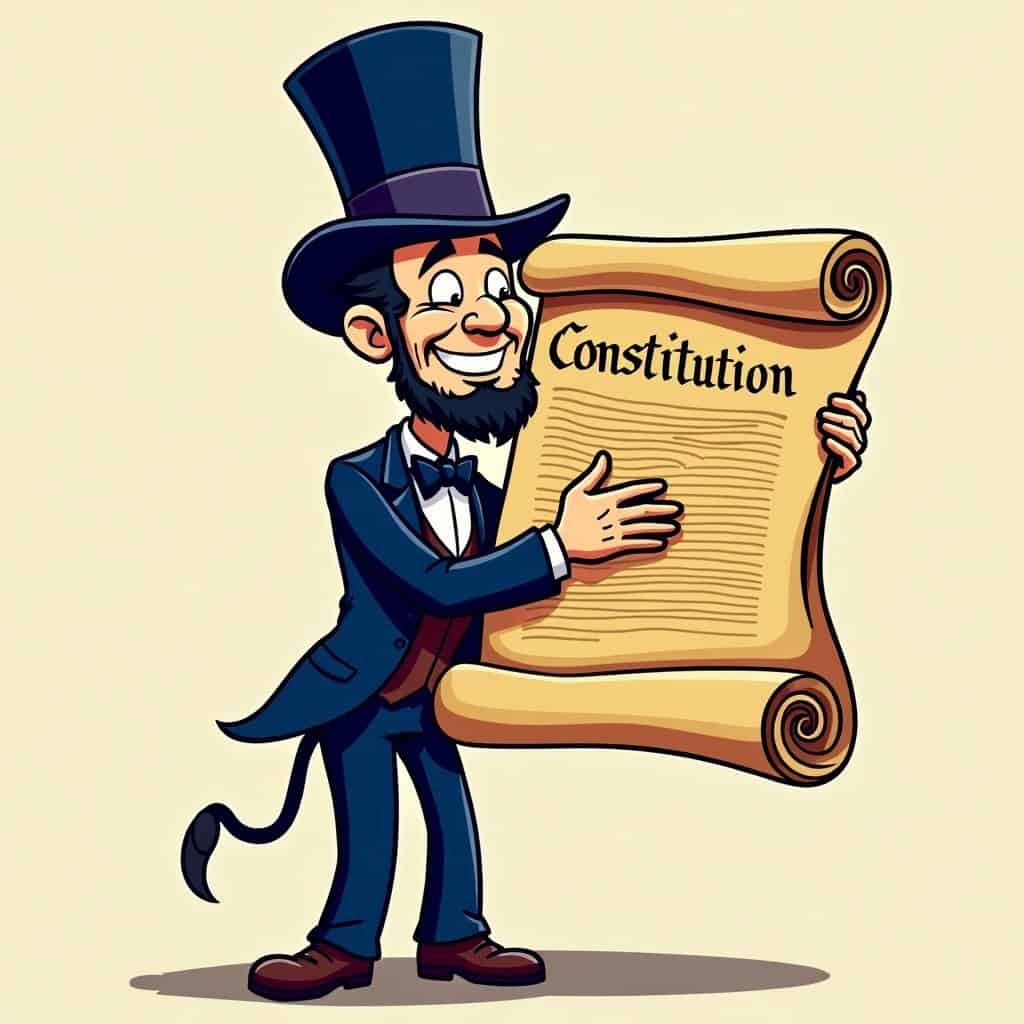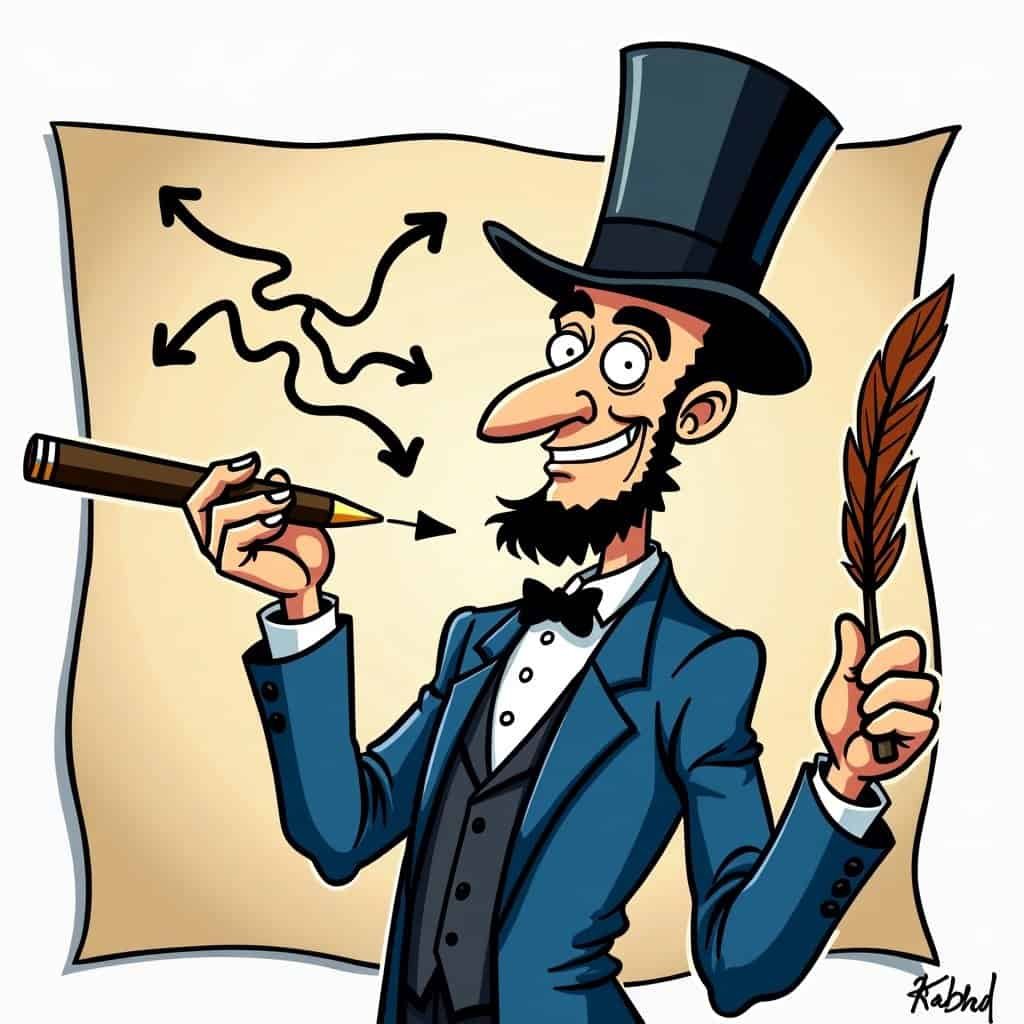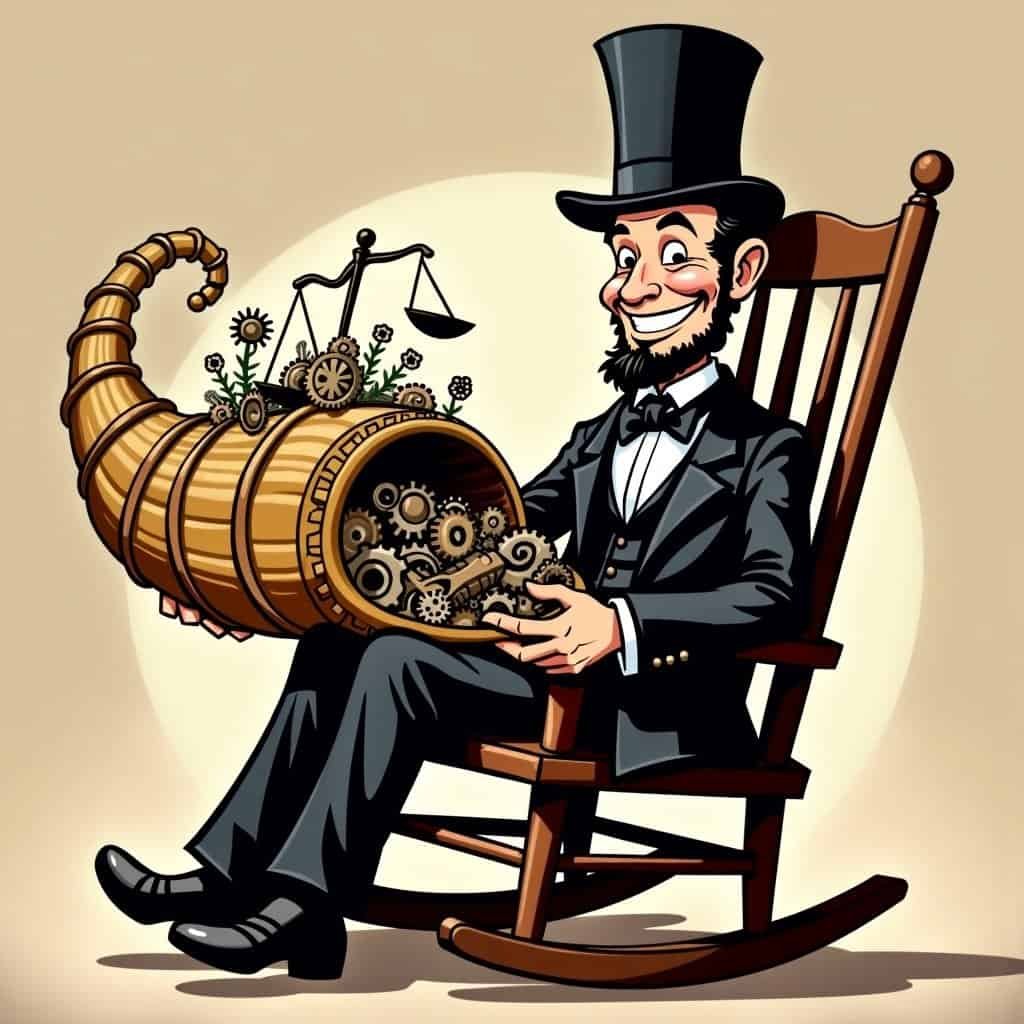Abraham Lincoln: a man with a beard so impressive it could make razors tremble, and an economic strategy that left the South singing a sad tune. It wasn’t just soldiers marching in the Civil War; there was also a symphony of coins jingling in Treasury coffers, conducted by none other than Honest Abe himself.
Lincoln, a master of subtle sarcasm wrapped in politeness, borrowed a page from the capitalist handbook when he figured out that cutting the South’s money streams would pack as much punch as any battlefield clash. After all, nothing quite says “I mean business” like yanking the financial carpet from under someone’s feet. Who knew Abe was a supply chain whiz before it was even a thing?
While the South bet all their cash on King Cotton, Lincoln, with his knack for creative problem-solving, pulled off an economic dance that would make Wall Street bigwigs green with envy. He played the North’s trump card: industrial power. Who needs muscle when you’ve got steam engines on steroids, right?
Lincoln’s Economic Strategy
| North | South |
|---|---|
| Industrial might | King Cotton |
| Diversified economy | Agricultural focus |
| Tariff adjustments | Limited financial options |
Free market fans certainly praise the wonders of capitalism – and here was Lincoln, tweaking import tariffs quicker than a cat on a hot tin roof to funnel war money where it counted. Jefferson Davis and his gang could barely find spare change in their couch cushions, while the North was busy investing in military tech like it was going out of style.
The best part for Lincoln? His decisions left the other side begging for handouts where there were only empty pockets. The Yankees, channeling their inner Adam Smith, turned every factory into a money-making machine. Meanwhile, whispers of ‘economic doom’ floated down the Mississippi, drowning out any bragging about cotton riches.
But here’s the kicker. Lincoln’s economic plan wasn’t just clever—it was a riddle wrapped in a mystery inside an economic atom bomb. Rumor has it that if you brought up this sneaky money move to Lincoln, he’d just grin, tip his hat, and stroll away, leaving folks wondering if they’d just been pranked.
Republican Principles in Action
Now, let’s not forget that golden Republican rule: keep the government out of our wallets and let the market do its thing. Lincoln’s way of dealing with the South’s money mess fits this idea to a T. After this wacky economic tango, the country was bound to learn that where you put your cash – in factories or fields – could mean the difference between rolling in dough or swimming in debt.
Lincoln didn’t just want to keep the country together; he wanted to shape it, molding it until it sang in harmony with the free-market melody. He was light-years ahead of his time and while the Confederacy spun its economic wheels, the North didn’t just play along—it practically conducted a whole symphony of victory and full coffers.
Conclusion
Maybe next time, alongside the battle cries and drum rolls, the Southern rebels should’ve taken a page from Lincoln’s playbook: think beyond the battlefield and watch out for the money wizard with a knack for payback. Here’s to Lincoln, whose sharp wit and economic smarts left the South doing an unexpected dance of financial failure.






